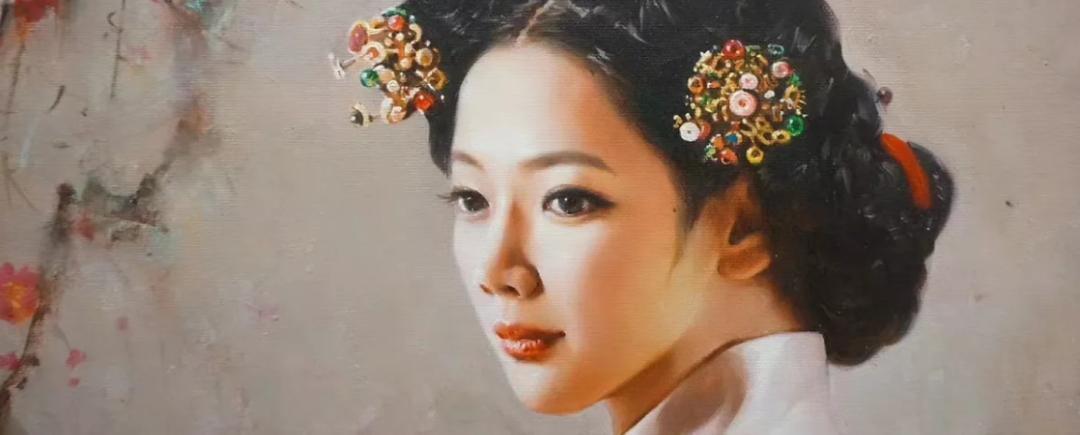
There are no documentary works on life in the Cold Palace written by the harem ladies in Chinese history, but there is one in the neighboring Joseon Dynasty. It's the Diary of an Ugly Decameron.
癸 ugly, that is, 癸 ugly year, refers to 1613 AD.
In that year, King Lee Hyun of Joseon (Gwanghae-jun) extended a butcher's knife to his stepmother, Princess Kim (the wife of Joseon Hyun-joo, Queen Inmu), and his younger brother, Prince Yongchang.
Subsequently, Queen Inmu and her daughter Princess Jeongmyung were imprisoned in Seogung Palace (present-day Deoksugung Palace, Seoul) and began a life of nearly 10 years in the Cold Palace.
Judging from the tone of the author of the "Diary of the Ugly", she should be the palace maid beside Queen Renmu, that is, the witness of this incident.
Deoksugung Palace used to be in the Imperial Palace
It is said that the predecessor was the house arrest of Queen Renmu
Queen Renmu, as a princess, originally had a considerable number of handmaidens around her.
And Guang Haijun naturally would not allow this stepmother, whom he regarded as a thorn in his eye, to continue to be pampered, so more than 30 palace attendants waiting for Queen Renmu died of torture.
These palace ladies were quite dignified, and most of them chose to sacrifice and never framed Her Royal Highness the Grand Concubine.
After that, Guang Haijun built a military fort near queen Renmu's residence, built a high wall, and placed thorns on the wall, which were wrapped like iron barrels.
The Grand Concubine Hall was almost completely cut off from the outside world.
Man, as long as he is alive, eating, drinking, and sleeping is an inevitable physiological activity. One of the difficulties of cold palace life, which is often ignored by the girls who fantasize about romantic court life, is the feces and urine.
If you think about it, in ancient times, there was no flush toilet, and the court had to be transported outside to deal with the filth.
However, Queen Renmu's mother and daughter and the palace people were all locked up in the high wall, losing their personal freedom, and no matter how much they begged Guanghai jun, the answer brought back by the eunuchs outside was the same: You solve it yourself! Just find a place to pile it up.
Imagine so many people locked up in a compound, year after year, the amount of "compost" ...
After only two years, the maggots in the Grand Concubine Hall crawled everywhere, and even the pot used for cooking rice could not bear to see, and how to kill them could not be stopped.
(After all, the rate of degradation of feces and urine is far less than the growth rate)
Later, under the continuous crying of the Shang Palace, Guang Haijun finally sent a sweeper.
It is said that at that time, even the roof of the Grand Concubine Hall was covered with a layer of bird droppings, and the stench was stinking.
However, this kind of cleaning work is only a reward for the good or bad mood of the light sea jun, generally only once every two years, and occasionally encounters the light sea jun happy, once a year can have it.
As we all know, the palaces of East Asian countries are mainly wooden buildings. If you don't take care of it for a long time, the speed of damage will exceed your imagination.
Since Queen Renmu was already the "wasted mother" of Guang Haijun, the West Palace where she lived was naturally unnoticed.
Before long, the palace began to leak. The palace ladies were unbearable and planned to climb up to the roof themselves to repair it, but they were seen as a thorn in the side by the eunuchs who monitored the situation in the palace.
In addition to the malice from Guang Haijun, it is also the common sentiment of people to worship high and step on low. Among the palace ladies who were imprisoned with Queen Renmu, there were also two hearts.
These people were instructed by the people on the other side of the main hall to often light fires where the charcoal was piled up, hoping to cause a fire to burn Queen Renmu and Princess Zhenming, in order to ask for merit from Guanghai Jun.
In order to protect Queen Renmu and her own life, the Shang palaces had to make dinner at one or two o'clock in the afternoon. Fires are prohibited from the afternoon onwards and patrolled every two hours.
Although there is a daily dietary supply, you don't have to think about other things.
The "Diary of the Ugly" also records how the palace women at that time exhausted the methods to make daily necessities.
For example, nails were removed from the remaining cabinets in the palace and used to make high-heeled clogs.
Another example is tearing off old clothes and making shoes out of cloth strips.
It was not just that the roof of the Grand Concubine Hall was full of thick guano, which had become a valuable resource.
The palace ladies found the seeds of cotton and indigo from the bird droppings, and after a year or two, the raw materials for cotton clothes and the dye for dyeing cloth were available.
In addition, the seeds of vegetables such as cucumbers, eggplants, winter melons, and gourds were basically found from bird droppings by the palace people who served Queen Renmu.
I have to say that this group of people had to perform a story similar to Robinson Crusoe in the palace.
Therefore, the real palace fight is not just as simple as you poison me and I poison you, the cold palace is also more bitter than imagined.